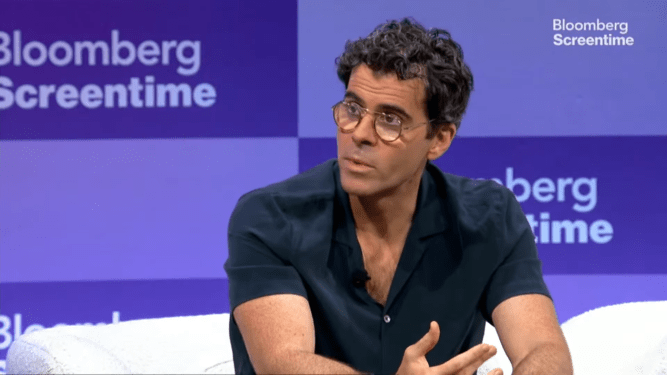Instagram head Adam Mosseri stated that AI will change who can be creative. He explained that new tools and technology will enable people who were not previously creators to produce content at a certain level of quality and scale. However, he also acknowledged that bad actors will use the technology for nefarious purposes. He added that children growing up today will need to be taught that they cannot believe something just because they saw a video of it.
The Meta executive shared his thoughts on how AI is impacting the creator industry at the Bloomberg Screentime conference this week. At the start of the interview, Mosseri was asked to address recent comments from creator MrBeast, whose real name is Jimmy Donaldson. On Threads, MrBeast had suggested that AI-generated videos could soon threaten creators’ livelihoods and called it scary times for the industry.
Mosseri pushed back on that idea, noting that most creators will not use AI technology to replicate what MrBeast does with his large sets and elaborate productions. Instead, he believes AI will allow creators to do more and make better content. He explained that the internet allowed almost anyone to become a publisher by reducing the cost of distributing content to essentially zero. He said generative AI models look like they will reduce the cost of producing content to basically zero.
In addition, the executive suggested there is already a lot of hybrid content on major social platforms, where creators use AI in their workflow without producing fully synthetic content. For example, they might use AI tools for color corrections or filters. Mosseri said that going forward, the line between what is real and what is AI-generated will become even more blurred. He expects there to be more content in the middle rather than purely synthetic content for a while.
As things change, Mosseri said Meta has some responsibility to do more in terms of identifying AI-generated content. But he also noted that the company’s initial approach was not the right focus and was practically a fool’s errand. He was referring to when Meta tried to label AI content automatically, which led to real content being mislabeled because AI tools were used as part of the creation process.
The executive said the labeling system needs more work, and that Meta should also provide more context to help people make informed decisions. While he did not elaborate on what that context would be, he may have been thinking about features like Meta’s Community Notes. This is a crowdsourced fact-checking system modeled on the one used by X, where users add corrections or context when they agree it is needed. It is likely Meta is considering using such a system for flagging unlabeled AI content.
Rather than placing the responsibility solely on the platform, Mosseri suggested that society itself would have to change. He explained that his young children need to understand that seeing a video of something does not mean it actually happened. He contrasted this with his own upbringing, where he could assume a video captured a real moment. He concluded that people will need to think about who is saying something, who is sharing it, what their incentives are, and why they might be saying it.
In the discussion, Mosseri also touched on other topics regarding Instagram’s future beyond AI. This included plans for a dedicated TV app and a newer focus on Reels and direct messages as core features, which he said simply reflects user trends. He also commented on how TikTok’s changing ownership in the U.S. will impact the competitive landscape. He said that competition is ultimately better, as TikTok’s U.S. presence has forced Instagram to do better work. Regarding the TikTok deal itself, Mosseri said it is hard to parse, but it seems the app’s fundamental build will not meaningfully change. He stated it is the same app, the same ranking system, the same creators, and the same people, making the transition seem seamless without a major change in incentives.

